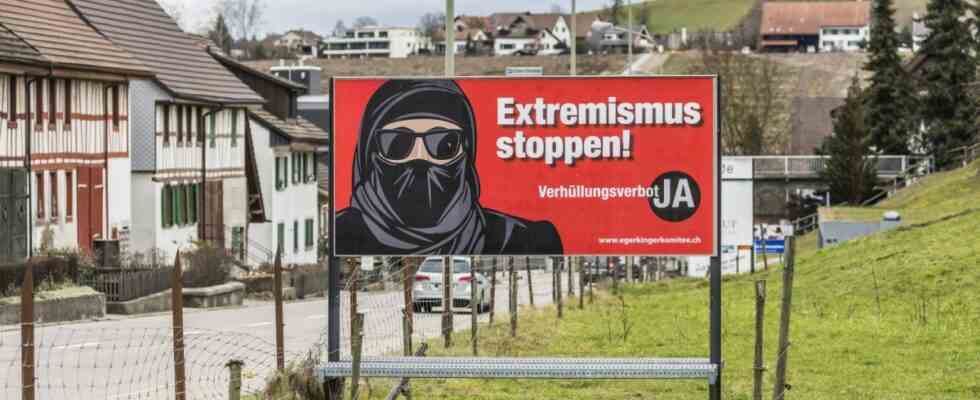Morges is a picturesque town on Lake Geneva, you have a view of Mont Blanc, in early summer they celebrate a tulip festival here. But now Morges is above all the city where the first Islamist terrorist attack in Switzerland took place: Ömer A., now 29 years old, bought a knife with a 20 centimeter blade here in mid-September 2020. He chose a kebab shop and, according to the federal prosecutor’s indictment, rammed the knife into the side of a 29-year-old man from behind while shouting “Allahu Akbar.” The randomly selected victim, a man with a Portuguese passport, was sitting with friends on the snack bar’s terrace. He died at the scene of the crime.
The trial before the Federal Criminal Court in Bellinzona took place last December. Federal prosecutors accused Ömar A., who has both Swiss and Turkish citizenship, of murder and violating the ban imposed by the “Islamic State” (IS), among other things. She called for 18 years in prison and proper detention, i.e. imprisonment beyond the actual prison sentence. The defense did not deny the murder charge but opposed the custody. As a lawyer claimed health problems in the process. The accused deserved “a bit of humanity”.
The court announced its verdict on Tuesday: Ömer A. is therefore guilty of murder, attempted murder, attempted arson, threats, propaganda for IS and violation of the Narcotics Act. In the eyes of the court, Ömer A. committed an Islamist-motivated terrorist attack by killing the man in Morges, which he was inspired by IS propaganda videos. The court also considers the majority of the other charges to be proven: Ömer A. tried to set fire to a gas station before the crime in Morges, and even after his arrest in autumn 2020 he wanted to stick a pen in the prison guard in Thun ram neck.
The convict faces a total of 20 years in prison
The convicted person receives a prison sentence of 20 years (from which three and a half years in custody are deducted). The court decided not to keep him in custody and instead ordered a therapeutic measure in a closed facility. It therefore considers Ömer A. to be clearly guilty, but also treatable. With the verdict announced on Tuesday, the killing in Morges is the first Islamist murder on Swiss soil.
However, it is not the only Swiss terrorist attack with jihadist motives: just over two months after Ömer A’s crime, a similar incident occurred in Lugano, albeit without a fatal outcome. A woman injured two other women with a knife in a shopping center, one of them seriously, citing the terrorist militia IS. In September 2022, the Federal Criminal Court sentenced the perpetrator to nine years in prison for attempted murder and violating the IS ban. The sentence was rather mild because of the woman’s mental disorders.
Even if both cases involved lone perpetrators with mental health problems, the crimes make it clear that Islamist terrorism is a real danger in Switzerland too. The neutral country has never actively taken part in wars in the Middle East or, like other European countries, has been militarily involved in West Africa. Nevertheless, Switzerland is assigned to the western camp globally. It has also passed several Islam-critical rules by means of referendums, such as the ban on building new minarets or the recently enforced ban on full veils.
The IS terrorist militia may have been weakened, but the ideology remains
The Federal Intelligence Service (NDB) describes the jihadist terrorist threat in Switzerland in its 2021 management report also as “continues to increase”. As a core organization, the IS is hardly in a position to prepare or carry out attacks in European countries itself. However, his ideology remains “as a breeding ground and source of inspiration”.
Accordingly, the Swiss intelligence officials write, the most likely threat in Switzerland is “attacks with little organizational and logistical effort, carried out by autonomous individual perpetrators,” in which radicalization coincides with personal crises or psychological problems. There seem to be a few regional hotspots of radicalization: According to Geneva political scientist and terrorism expert Frédéric Esposito The federal intelligence service primarily monitors groups and mosques in the Winterthur, Geneva and Renens area.

